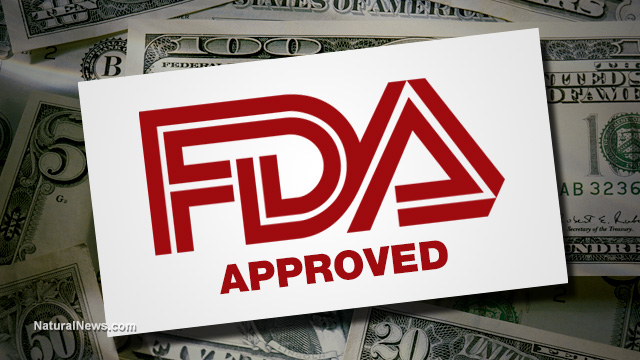The revolving door with regulatory agencies like the FDA with those whom they are supposed to be overseeing is becoming more and more evident.
***Article first published by 'Natural News' on Nov. 23, 2016***
(NaturalNews) Evidence has recently been uncovered revealing that the U.S. Food and Drug Administration (FDA) routinely manipulates the media to protect the agency's own interests – or more specifically, those of Big Pharma.
Scientific American has obtained documents through the Freedom of Information Act that cast light on the agency's use of numerous techniques it uses to control the flow of information to the public by imposing restrictions on the scientific press and mass media outlets.
'Close-hold embargoes' for the press allow the FDA to control the narrative
One of the main ways this is accomplished is through the imposition of what are termed "close-hold embargoes," which allow selected members of the press to receive advance information about upcoming announcements and agency activities.
From Mint Press News:
"The biggest tactic is the 'close-hold embargo,' where they invite a select few news sites to a briefing about the to-be released information with conditions. They stipulate that the journalists have to surrender their reportorial independence by agreeing to only speak with sources approved by their agency."
These types of press embargoes are variations on a theme established as far back as the 1920's, that have generally served the worthwhile purpose of allowing individual press outlets to have equal opportunity to research stories in advance of upcoming information releases without being "scooped" by other outlets.
From Scientific American:
"A surprisingly large proportion of science and health stories are the product of embargoes. Most of the major science journals offer reporters advance copies of upcoming articles—and the contact information of the authors—in return for agreeing not to run with the story until the embargo expires. ...
"But scientific institutions soon realized that embargoes could be used to manipulate the timing and, to a lesser extent, the nature of press coverage. The result is a system whereby scientific institutions increasingly control the press corps."
Hence the emergence of the close-hold embargo, which prohibits those in the press who agree to them from talking to unapproved independent sources, in exchange for privileged access to briefings that reflect only the FDA's slant on the story.
The close-hold embargoes also prevent reporters from revealing that they agreed to such terms and from talking about the embargoes at all. Those who dare to violate the terms are banned from any further access to such advance briefings.
The FDA carefully picks a handful of media outlets to which it offers such access in the first place. Journalists must prove that they are willing to play the game according to FDA rules or else they are left out in the cold.
When the announcements are finally made public, the FDA lapdog media outlets already have their stories prepared – according to the FDA narrative – and those stories generally set the tone for the rest of the media to follow.
Who is the FDA really working for?
It's an insidious and highly effective way for the FDA to control public opinion through manipulating the press, and it contradicts everything the agency is supposed to stand for.
The FDA's job is to protect public health, not to protect Big Pharma through manipulating the media.
How have we allowed this monster to be created? The mere suggestion that the FDA would stoop to such dirty tactics should be grounds for a full congressional investigation, and there's far more here than than just a suggestion – there's solid proof in the documents obtained by Scientific American.
There's also the testimony of a few journalists who are willing to acknowledge the use of these tactics, including a New York Times reporter and others from major media outlets.
The evidence is there, but unfortunately very few people are even taking notice.
